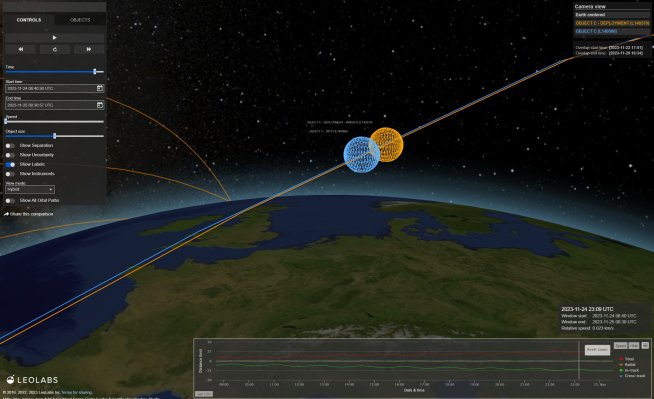The number of objects in space has risen dramatically over the past 30 years, and much of that is due to commercial companies unlocking new business cases and discovering cheaper ways to get to space.
But that doesn’t mean there haven’t been growing pains — like increased congestion in orbit. For commercial satellite operators, the biggest concern tends to be colliding with another object; for the U.S. Space Force, it’s making sure American defense and its allies knows where objects are in space, what they’re doing and who put them there.
For most of the time we’ve been putting stuff into space, monitoring and characterizing objects has been under the aegis of the Department of Defense. But a whole host of companies have emerged to realize the commercial potential of providing critical intelligence on objects in orbit.
One such company is LeoLabs. The nine-year-old startup has built out a 10-site radar network that spans both hemispheres to collect data on more than 20,000 objects in low Earth orbit, as well as a cluster of products from straightforward precision tracking to real-time alerts if your satellite is at risk of a collision.
The company started the year strong, banking a new contract from NOAA’s Office of Space Commerce that will help inform the agency’s important Traffic Coordination System for Space initiative. Building on that momentum, LeoLabs announced today that it closed a $29 million extension to its $65 million Series B that closed in the summer of 2021.
LeoLabs raised the new capital to fund growth in AI tech — which makes sense, as its insights are the bread-and-butter of the business. Defense customers integrate these insights into command operations, while commercial operators use this information to inform mission planning and spaceflight safety analysis.
“We’ve already applied AI models for detecting on-orbit maneuvers in real time, categorizing objects, characterizing ‘unknown’ objects, and analyzing patterns-of-life on recently launched objects,” founder and CEO Dan Ceperley told TechCrunch. “As the number of objects and activities in LEO continue to grow, it’s becoming more and more difficult for operators to keep up. The tools we’re developing will help the industry leverage automation and advanced analytics to keep pace with this rapid growth.”
He said that the new investment will also fuel development of new radar technologies that will be able to provide coverage of even smaller pieces of orbital debris, as well as track “non-cooperative” launch activities in very low Earth orbit. This last piece is of particular interest to the U.S. Space Force, because it refers to launches that aren’t coordinated with the U.S. or its allies — like China, which keeps its space activity notoriously close to the chest.
The round, which LeoLabs said was oversubscribed, was led by GP Bullhound, with participation from new investors 1941 and Dolby Family Ventures. It was also backed by existing investors, including Insight Partners, Velvet Sea Ventures, Space Capital, and the AngelList syndicate led by Dylan Taylor.
